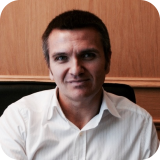JUAN SEVILLÁ
JUAN SEVILLÁ

Although Clinical Psychology with evidence support attempts to answer the question "what are the best treatments for each problem?", In practice, this is usually not enough. In this sesion, a therapeutic decision making model will be presented. It comes from the synergistic use of three sources of information. The first one includes empirical data provided by rigorous and methodologically appropiate research. This information guides the whole process, and saves us from becoming gurus, putting scientific limits on what works, what is effective for each problem. It controls our excess of therapeutic creativity. The second source comes from a strictly attentional and clinical level. What kind of person do we have in front of us? We do not just talk about a problem, but also about a person who has a problem. What are his/her strengths? What are his/her weaknesses? It is common that an empirically validated treatment fails in real settings because it does not take into account what kind of person our client is. This is a common mistake among therapists who have been trained in an academic world, and their clinical experience comes only from research. Finally, and thirdly, the information that comes from the cognitive-behavioral model, which is understood as first, second or third generation. Those behaviors that remain in the time, including what we call psychological problems, do it because they are reinforced. Consequences in Negative or Positive Reinforcement format perpetuate the problem. It will be essential for the clinician to keep in mind that the purpose of therapy, regardless of the techniques to be used, will always be to eliminate such consequences or reinforcements. The main virtue of the proposed method is the universality; that means that it serves for any disorder.
Juan Sevillá is a clinical psychologist. He graduated in Valencia and attended postgraduate studies in the United States (New York), England (Oxford) and Holland (Gronningen). He has published over 40 articles on applied clinical psychology, 6 book chapters and 7 books. He works and directs the Center for Behavioral Therapy (Valencia), an institution dedicated to the treatment of people with all kinds of emotional problems. He also trains psychologists, at a postgraduate level, in Cognitive Behavioral Therapy. His clinical work with more than 26 years of experience includes, especially, the treatment of anxiety disorders and depression, but in the latter is focused on the application of psychological therapy to schizophrenia and bipolar disorder. He is a member of the group of experts who develops the guide for empirically validated treatments, designated by the Ministry of Health of Spain.




